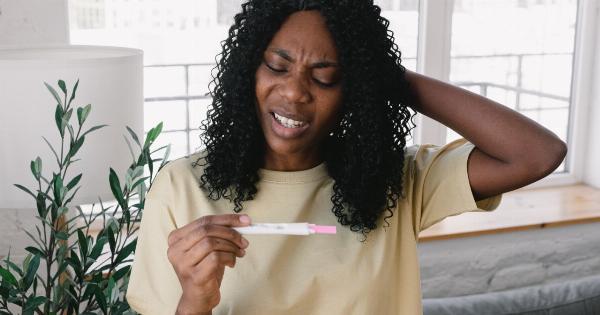Hemorrhoids, also known as piles, are a common condition that affects millions of people worldwide. These swollen veins in the rectum and anus can cause discomfort, pain, and even bleeding.
While hemorrhoids can be unpleasant and bothersome, they are not life-threatening and can often be managed with proper care and treatment.
What are Hemorrhoids?
Hemorrhoids are vascular structures that are a normal part of the anal canal. They help control stool movement and contribute to the continence of feces.
However, when these veins become swollen and inflamed, they can cause significant discomfort and pain.
Types of Hemorrhoids
There are two main types of hemorrhoids – internal hemorrhoids and external hemorrhoids.
1. Internal Hemorrhoids
Internal hemorrhoids develop inside the rectum, where they cannot be seen or felt. They are usually painless and are often accompanied by bleeding during bowel movements. Internal hemorrhoids can be classified into four grades:.
Grade 1:
These hemorrhoids are small and only present inside the anal canal.
Grade 2:
In this case, the hemorrhoids prolapse during bowel movements but retract spontaneously once the process is complete.
Grade 3:
Hemorrhoids at this stage also prolapse during bowel movements, but require manual intervention to be repositioned.
Grade 4:
These are the most severe type of internal hemorrhoids. They remain prolapsed and cannot be repositioned manually.
2. External Hemorrhoids
External hemorrhoids are visible and can be felt as lumps around the anus. They can be quite painful and are often accompanied by itching and discomfort. Unlike internal hemorrhoids, external hemorrhoids rarely bleed.
Causes of Hemorrhoids
There are several factors that can contribute to the development of hemorrhoids:.
1. Straining during Bowel Movements
Excessive straining or pushing during bowel movements can put pressure on the veins in the anal area, leading to the development of hemorrhoids.
2. Chronic Constipation or Diarrhea
Both chronic constipation and diarrhea can cause hemorrhoids. Struggling with hard bowel movements or experiencing frequent loose stools can irritate the veins in the anal canal.
3. Pregnancy
Pregnant women are more prone to developing hemorrhoids due to the increased pressure on the veins in the pelvic area. Hormonal changes during pregnancy can also contribute to the formation of hemorrhoids.
4. Obesity
Being overweight or obese can put extra pressure on the veins in the anal canal, making hemorrhoids more likely to develop.
5. Sedentary Lifestyle
A lack of physical activity and prolonged sitting can impair blood circulation and increase the risk of hemorrhoids.
Treatment and Prevention
The good news is that hemorrhoids can usually be effectively treated and managed with conservative measures. Here are some tips to alleviate symptoms and prevent the recurrence of hemorrhoids:.
1. Maintain Good Hygiene
Keep the anal area clean and dry. Use mild, fragrance-free soap and avoid excessive wiping, as it can further irritate the hemorrhoids.
2. Increase Fiber Intake
Eat a diet rich in fiber to soften the stool and promote regular bowel movements. Fiber can be found in fruits, vegetables, whole grains, and legumes.
3. Stay Hydrated
Drink plenty of water throughout the day to keep your stools soft and easy to pass.
4. Avoid Straining
Avoid straining during bowel movements by not forcing stool or spending excessive time on the toilet. If necessary, try using a footstool to raise your feet and improve the natural position for passing stools.
5. Practice Good Posture
Avoid sitting or standing for long periods. Take breaks and incorporate exercises that promote blood circulation, such as walking or stretching.
6. Use Over-the-Counter Remedies
There are various over-the-counter creams, ointments, and suppositories available that can help relieve hemorrhoid symptoms.
These products may contain ingredients like hydrocortisone or witch hazel, which can reduce inflammation and provide temporary relief.
When to Seek Medical Attention
While most hemorrhoids can be managed at home, there are instances where medical intervention may be necessary. You should consult a healthcare professional if:.
1. Your Symptoms Worsen
If your hemorrhoids are not improving with conservative measures or if you experience severe pain, persistent bleeding, or excessive itching, it’s important to seek medical advice.
2. You notice Blood in Your Stools
Bleeding from the rectum can have various causes, including hemorrhoids, but it can also indicate more serious conditions. It’s essential to get checked by a healthcare professional to rule out any underlying issues.
3. You Have Recurring Hemorrhoids
If you have a history of recurring hemorrhoids or if they persist despite treatment, a doctor may recommend further interventions such as minimally invasive procedures or surgery to provide long-term relief.






























